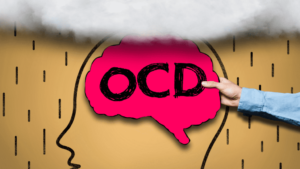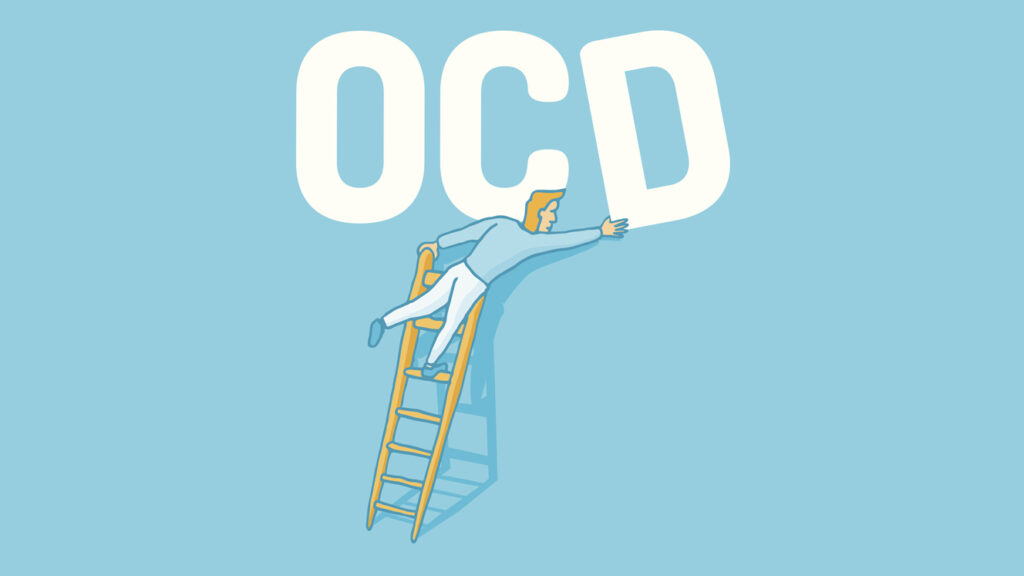Are you constantly worried about the smallest things? Do you feel like you have to repeat certain actions until they are “just right?” You may be suffering from OCD and anxiety. While these conditions can be debilitating, there is hope. With the help of an OCD and anxiety clinic, you can learn how to manage your symptoms and improve your quality of life. In this blog post, we will explore everything that everyone must know about OCD and anxiety clinics, including what they are, how they work, and why they could be the key to overcoming these challenging conditions. So grab a cup of coffee or tea as we dive into this topic head-on!
Contents
What are OCD And Anxiety?

There are many different types of anxiety disorders, but one of the most common is OCD, or obsessive-compulsive disorder. People with OCD have intrusive, unwanted thoughts (obsessions) that drive them to do repetitive behaviors (compulsions). These obsessions and compulsions can be very time-consuming and interfere with everyday life.
Most people with OCD are aware that their thoughts and behaviours are irrational, but they feel powerless to stop them. OCD is a chronic condition, meaning it can last for years, even a lifetime. However, with treatment, most people with OCD can learn to manage their symptoms and live productive lives.
The Different Types of Anxiety Disorders
 There are a number of different types of anxiety disorders, each with its own symptoms and treatment options. The most common types of anxiety disorders are:
There are a number of different types of anxiety disorders, each with its own symptoms and treatment options. The most common types of anxiety disorders are:
Generalized Anxiety Disorder (GAD): GAD is characterized by chronic and excessive worry about a variety of things, including work, family, finances, and health. People with GAD often feel on edge, have difficulty concentrating, and may experience physical symptoms such as headaches, muscle tension, and fatigue. Treatment for GAD typically includes cognitive-behavioral therapy and medication.
Panic Disorder: Panic disorder is characterized by recurrent and unexpected panic attacks. A panic attack is a period of intense fear or discomfort that typically lasts for several minutes. During a panic attack, people may experience heart palpitations, shortness of breath, dizziness, trembling, and fear of losing control or dying. Panic disorder can be debilitating and often leads to avoidance of situations or places where an attack might occur. Treatment for panic disorder typically includes cognitive-behavioral therapy and medication.
Social Anxiety Disorder (SAD): SAD is characterized by intense anxiety or fear about social situations in which the person may be scrutinized or judged by others.People with SAD often avoid social situations altogether or end up feeling extremely anxious and self-conscious in these situations. Treatment for SAD typically includes cognitive-behavioral therapy and medication.
Specific Phobias: A specific phobia is an intense fear or anxiety triggered by a particular object or situation. Common examples of phobias include fear of heights, flying, or public speaking. Treatment for specific phobias typically includes cognitive-behavioral therapy and exposure therapy.
Obsessive-Compulsive Disorder (OCD): OCD is characterized by intrusive thoughts (obsessions) and repetitive behaviors (compulsions). People with OCD may feel driven to perform certain rituals in order to prevent something bad from happening, even though they know that the rituals are not actually necessary. Treatment for OCD typically includes cognitive-behavioral therapy and medication.
What Happens at an OCD and Anxiety Clinic?
 An OCD and Anxiety Clinic is a place where people with Obsessive Compulsive Disorder (OCD) and anxiety can go to get help. There are many different types of OCD and anxiety, so the treatments at an OCD and Anxiety Clinic can vary depending on what each person needs. However, there are some common treatments that are often used to help people with OCD and anxiety.
An OCD and Anxiety Clinic is a place where people with Obsessive Compulsive Disorder (OCD) and anxiety can go to get help. There are many different types of OCD and anxiety, so the treatments at an OCD and Anxiety Clinic can vary depending on what each person needs. However, there are some common treatments that are often used to help people with OCD and anxiety.
Cognitive Behavioral Therapy (CBT) is one of the most common types of treatment for OCD and anxiety. CBT helps people to change the way they think about their obsessions and compulsions, which can eventually help them to control their OCD and anxiety. Exposure therapy is another type of treatment that is often used to help people with OCD and anxiety. Exposure therapy involves gradually exposing a person to the things that trigger their OCD or anxiety, while helping them to learn how to cope with the feelings that come up.
Medication is also sometimes used to treat OCD and anxiety. Medication can be helpful in reducing the symptoms of OCD and anxiety, but it is not a cure. Some people find that a combination of medication and therapy is the best way to manage their OCD and anxiety.
Different Treatments In an OCD and Anxiety Clinic
There are many different types of treatments available at an OCD and Anxiety Clinic. Each patient is unique and therefore responds differently to various types of treatments. The most common type of treatment is Cognitive Behavioral Therapy (CBT). CBT has been shown to be effective in treating OCD and anxiety disorders. Other types of treatments that may be used include Exposure and Response Prevention (ERP), medication, and/or relaxation techniques.
A certified mental health professional will work with you to determine the best course of treatment based on your individual needs. They will also provide support and guidance throughout your journey to recovery.
How to Choose the Right Clinic for You
There are a few things you should take into consideration when choosing an OCD and anxiety clinic. First, consider the type of treatment the clinic offers. There are many different types of treatments for OCD and anxiety, so it’s important to find a clinic that offers the type of treatment that you think will be most effective for you. Second, consider the location of the clinic. It’s important to choose a clinic that is conveniently located so that you can easily get there for your appointments. Third, consider the cost of treatment at the clinic. Some clinics may be more expensive than others, but it’s important to find a clinic that is affordable for you. Lastly, consider the reputation of the clinic. It’s important to choose a clinic that has a good reputation so that you can be sure you’re getting quality care.
Alternatives to OCD and Anxiety Clinics
There are many alternatives to OCD and anxiety clinics. Some people may prefer to seek out therapy from a private practice, while others may find support groups more helpful. There are also many online resources available for those struggling with OCD and anxiety. Here are some of the most popular alternatives to OCD and anxiety clinics:
1. Private Practice: If you’re looking for one-on-one help, seeking out a therapist in private practice may be the best route for you. You’ll be able to work closely with a professional who can help you understand and manage your symptoms.
2. Support Groups: There are many different types of support groups available for those struggling with OCD and anxiety. These groups can provide valuable peer support and allow you to share your experiences with others who understand what you’re going through.
3. Online Resources: There are a wealth of online resources available for those struggling with OCD and anxiety. These resources can include forums, blogs, articles, and even online courses that can help you better understand and manage your condition.
Conclusion
OCD and anxiety clinics are a great resource for anyone who is struggling with mental health issues. They provide comprehensive care, from diagnosis to treatment planning, to ongoing support when needed. Whether you or someone you know is struggling with Obsessive Compulsive Disorder or other forms of anxiety, an OCD and Anxiety Clinic can help them get the necessary treatment they need in order to start living their best life. With so many options available it’s important to research your local clinic before making any decisions – but once you have everything sorted out and chosen your ideal clinic then the rest should be smooth sailing!
For more information and guidance, please contact OCDMantra. OCD is a mental health disorder characterized by obsessions and compulsions. If you have any queries regarding OCD treatment, OCD Counseling, ERP therapy experienced therapists at OCDMantra can help: Book a trial OCD therapy session


